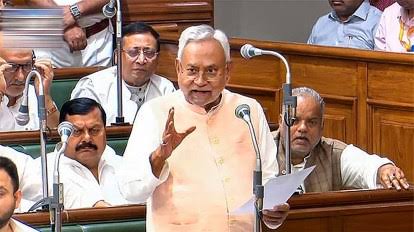The caste-based reservations have been increased in the education and government jobs from 50% to 65% by the Bihar legislative assembly. This increase makes a total of 75% after combining it with an extra quota for economically weaker sections. The following are the adjustments made in different categories: There’s an increase of 15% in the OBC category which was 12% earlier, in case of EBCs the change was from 18% to 25%, for Scheduled castes it is from 16% to 20% and for Scheduled tribes the increase is from 1% to 2%. For economically weaker sections, a separate 10% reservation is allocated.
This decision was made after the socio-economic caste survey conducted in Bihar. The results of the survey revealed that from the total population of Bihar, OBCs stand at 27.13%, EBCs at 36.01%, SCs at 19.65%, STs at 1.68% and general castes at 15.52%. Nitish Kumar, the Chief Minister of Bihar raised concern about the national caste census and increased reservations accordingly. Even if some leaders opposed and raised questions about the accuracy of the survey, the legislation got the support from the BJP’s Bihar unit.
It was revealed that approximately 34.13% of Bihar’s families earn less than Rs 6,000 per month. For these economically weaker families, Chief Minister Kumar declared some welfare benefits.
This increase exceeds the 50% reservation limit set by the Supreme Court in the 1992 Indra Sawhey judgment, meanwhile the assembly is waiting for the state governor’s approval. Few states like Tamil Nadu and some in the North-east, exceed this limit, but Maharashtra failed to implement it as it was rejected by the judiciary.
CM Nitish Kumar secured this survey and let go of the claims of inflated caste numbers and highlighted its importance as the first since 1931. The Congress party aligned with Kumar’s Janata Dal (United) in the opposition alliance, recommends for caste surveys and claims to discard the 50% reservation if they win in 2024 elections.
This issue has raised debate over data accuracy and legal limits which are set by the supreme court. This idea tries to raise concern about the historical disparities and uplifts the economically weaker families.

